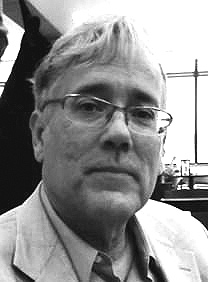Faith, Fact, and False Dichotomies
Notice: Undefined index: gated in /opt/bitnami/apps/wordpress/htdocs/wp-content/themes/thenewatlantis/template-parts/cards/25wide.php on line 27
A  dear atheist friend once turned to me in the middle of a Fernando Ortega concert to whisper, “that’s what holiness looks like.” Shocked by her response to this overtly Christian musician, I later asked what she meant. “I think holiness is when someone finds what they most love to do in this life. You can tell that this guy just lives to play the piano and sing about God. It feels like holiness when you watch it happen.”
dear atheist friend once turned to me in the middle of a Fernando Ortega concert to whisper, “that’s what holiness looks like.” Shocked by her response to this overtly Christian musician, I later asked what she meant. “I think holiness is when someone finds what they most love to do in this life. You can tell that this guy just lives to play the piano and sing about God. It feels like holiness when you watch it happen.”
The same can be said about the scientific work of University of South Carolina biologist Austin L. Hughes, my teacher, who died in October 2015 at the age of sixty-six. I have never met an intellectual more dedicated to an objective analysis of truth, despite what some might think of as conflicting commitments. A devout Catholic and a relatively conservative man, he spent his career studying evolution and contributing to its understanding with a single-minded tenacity and seriousness. He was first a philosophy student at Georgetown and Harvard in the late Sixties and early Seventies, but during his graduate years came to notice how preoccupied philosophy was with science while eschewing other kinds of knowledge, due especially to the influence of logical positivism. This drew his attention to the sciences, of which biology, it seemed to him, was an area of work relatively tolerant toward people of faith as compared to philosophy.
It turned out, as he explained in a 2013 interview with Salvo magazine, that the reason scientists seemed more tolerant at first “was just that they assumed that no one in their field subscribed to religion.” Nevertheless, although it may now stretch credulity to imagine the word “humble” as an accurate descriptor of biology’s attitude toward other disciplines, this was to him an important part of what drew him to study zoology, first at the University of Maryland, then at West Virginia University, and then at Indiana University, where he received his Ph.D. in 1984. In the pages of this journal, he recalled:
When I decided on a scientific career, one of the things that appealed to me about science was the modesty of its practitioners. The typical scientist seemed to be a person who knew one small corner of the natural world and knew it very well, better than most other human beings living and better even than most who had ever lived. But outside of their circumscribed areas of expertise, scientists would hesitate to express an authoritative opinion. This attitude was attractive precisely because it stood in sharp contrast to the arrogance of the philosophers of the positivist tradition, who claimed for science and its practitioners a broad authority with which many practicing scientists themselves were uncomfortable.
Notifications